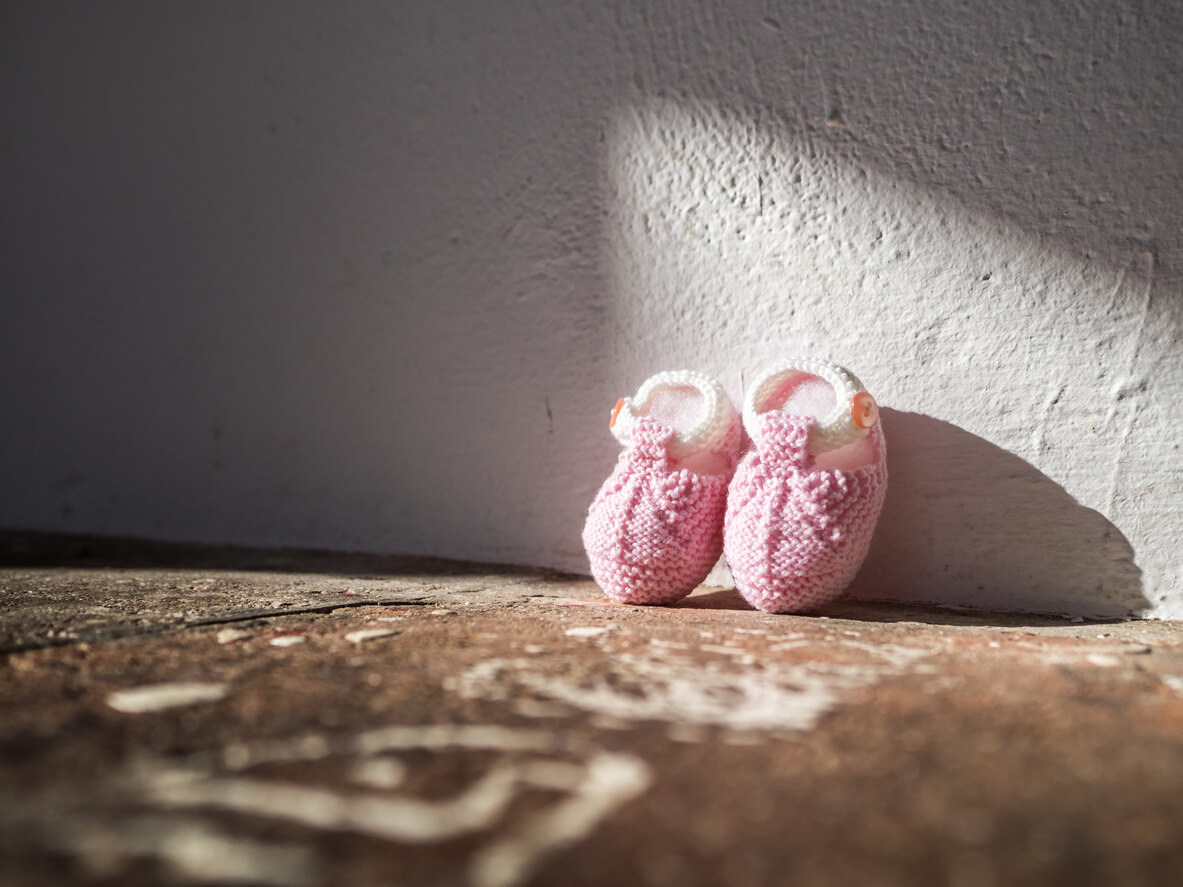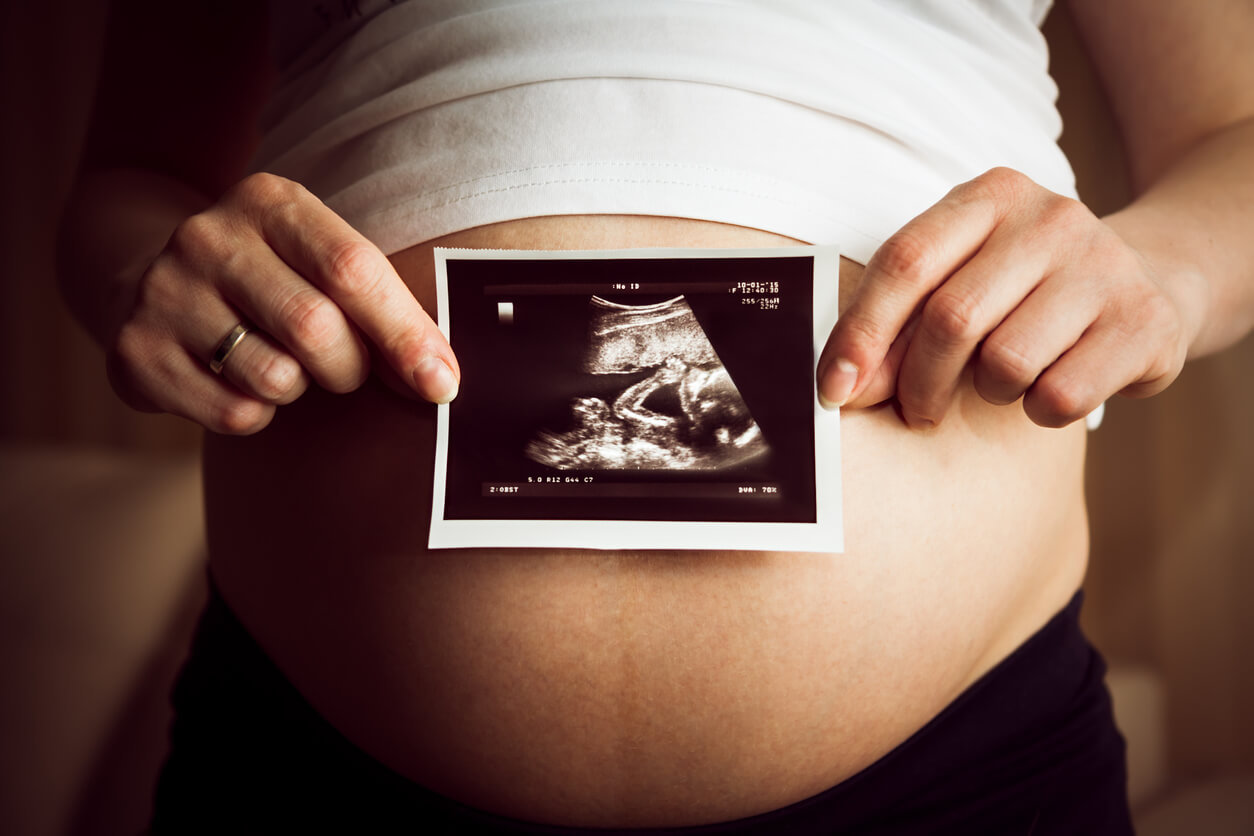A Study Says that Nausea Can Predict the Sex of Your Baby

One of the most common symptoms of the first months of pregnancy is nausea. But apparently, although it’s annoying, their intensity could be related to the fetal gender. In fact, since the time of Hippocrates, the myth has been sustained that the greater the discomfort, the greater the probability of having a girl. In other words, nausea can predict the sex of your baby.
Based on this theory, researchers sought to verify a causal association between these two phenomena, and today, we’ll share with you a very recent study on the subject.
However, it’s important to note that the confirmation of the baby’s sex during pregnancy is done by means of an ultrasound from week 12 or a genetic test. So, don’t rush out to start buying baby clothes until you know for sure! Keep reading to discover everything we have to tell you.
Nausea in pregnancy and the sex of your baby
Nausea is a common first-trimester symptom and many women have it throughout their pregnancy.
In general, these discomforts appear between the fourth and seventh week after conception and respond to the normal changes of this stage. It’s estimated that between 70 and 80% of pregnant women are affected by nausea at the beginning of pregnancy.
Although the specific cause of this condition isn’t exactly known, we do know that there’s a direct relationship between its incidence and the levels of gestational hormones in the blood, especially regarding Human Chorionic Gonadotropin (HCG), a substance secreted by the placenta, which is responsible for many of the bodily changes of the future mother.
For most women, nausea goes away between 12 and 16 weeks of pregnancy. However, up to 15% of pregnant women maintain this symptom until the 20th week of pregnancy or even until delivery.
It should be noted that some pregnant women are never affected by these discomforts, while others develop serious conditions, such as hyperemesis gravidarum.
Now, is it possible to explain this noticeable difference in some way or is it due to chance? We’ll tell you.

According to one study, nausea can predict the sex of your baby?
Recently, a scientific study carried out by specialists from Harvard University (United States) has been published in which they tried to establish the relationship between morning sickness and the sex of the baby. More specifically, they wanted to know if carrying a girl coincided with an increased risk of presenting this symptomatology.
To do this, the scientists analyzed the data obtained from a survey of 4,320 mothers from different parts of the world. From this information, they concluded that women who had carried a girl reported a higher frequency of morning nausea and vomiting, compared to those who had had a boy.
This could be explained by the fact that circulating hCG levels in maternal blood are usually higher in the case of a female fetus. However, this association is difficult to determine because the levels of this hormone vary greatly throughout the first trimester of pregnancy.
Despite all these hypotheses, scientists recommend not taking this symptom as an infallible predictor of your baby’s sex, as the only ways to confirm it during pregnancy are by ultrasound or genetic testing.
How else can you predict the sex of your baby?
In addition to the presumption about nausea, there are other beliefs that associate some maternal physical changes with the sex of the future baby. Have you heard of any of them?
The shape of your belly
It’s believed that if the belly is round, the pregnant woman will have a girl. On the contrary, if it acquires a pointed shape, then she’s expecting a boy. First of all, it’s worth saying that the morphology that the mother’s belly adopts is determined by her body texture and not by that of her little one.
Cravings
Another belief that exists around this topic is that when the mother prefers fruits or sweet foods, she’s pregnant with a girl. If you prefer salty or fried foods, then you’re expecting a boy.
The appearance of the mother’s skin
When you’re pregnant, hormonal changes cause the skin to look brighter and smoother than usual, especially when you’re expecting a boy. On the contrary, when the baby is a girl, the hormonal load is higher and this favors the development of acne and blemishes on the face. It should be noted that this phenomenon is not reliable in all cases.
Maternal body hair
Many pregnant women notice that at this stage there is an increase in their body hair. If this occurs, it’s associated with increased production of testosterone by the male fetus. On the contrary, if a girl is expected, this symptom is not as significant.

Does science confirm the myth that nausea can predict the sex of your baby?
Although beliefs about the sex of the baby can give us a clue, we can’t completely trust them. One way or another, it’s best to take it easy and wait for specialist confirmation with the 12 or 20-week ultrasound.
First of all, if you have doubts about the symptoms of pregnancy, the changes in your body, and their possible relationship with the health of your little one, consult your doctor and midwife so that they can guide you based on scientific evidence.
One of the most common symptoms of the first months of pregnancy is nausea. But apparently, although it’s annoying, their intensity could be related to the fetal gender. In fact, since the time of Hippocrates, the myth has been sustained that the greater the discomfort, the greater the probability of having a girl. In other words, nausea can predict the sex of your baby.
Based on this theory, researchers sought to verify a causal association between these two phenomena, and today, we’ll share with you a very recent study on the subject.
However, it’s important to note that the confirmation of the baby’s sex during pregnancy is done by means of an ultrasound from week 12 or a genetic test. So, don’t rush out to start buying baby clothes until you know for sure! Keep reading to discover everything we have to tell you.
Nausea in pregnancy and the sex of your baby
Nausea is a common first-trimester symptom and many women have it throughout their pregnancy.
In general, these discomforts appear between the fourth and seventh week after conception and respond to the normal changes of this stage. It’s estimated that between 70 and 80% of pregnant women are affected by nausea at the beginning of pregnancy.
Although the specific cause of this condition isn’t exactly known, we do know that there’s a direct relationship between its incidence and the levels of gestational hormones in the blood, especially regarding Human Chorionic Gonadotropin (HCG), a substance secreted by the placenta, which is responsible for many of the bodily changes of the future mother.
For most women, nausea goes away between 12 and 16 weeks of pregnancy. However, up to 15% of pregnant women maintain this symptom until the 20th week of pregnancy or even until delivery.
It should be noted that some pregnant women are never affected by these discomforts, while others develop serious conditions, such as hyperemesis gravidarum.
Now, is it possible to explain this noticeable difference in some way or is it due to chance? We’ll tell you.

According to one study, nausea can predict the sex of your baby?
Recently, a scientific study carried out by specialists from Harvard University (United States) has been published in which they tried to establish the relationship between morning sickness and the sex of the baby. More specifically, they wanted to know if carrying a girl coincided with an increased risk of presenting this symptomatology.
To do this, the scientists analyzed the data obtained from a survey of 4,320 mothers from different parts of the world. From this information, they concluded that women who had carried a girl reported a higher frequency of morning nausea and vomiting, compared to those who had had a boy.
This could be explained by the fact that circulating hCG levels in maternal blood are usually higher in the case of a female fetus. However, this association is difficult to determine because the levels of this hormone vary greatly throughout the first trimester of pregnancy.
Despite all these hypotheses, scientists recommend not taking this symptom as an infallible predictor of your baby’s sex, as the only ways to confirm it during pregnancy are by ultrasound or genetic testing.
How else can you predict the sex of your baby?
In addition to the presumption about nausea, there are other beliefs that associate some maternal physical changes with the sex of the future baby. Have you heard of any of them?
The shape of your belly
It’s believed that if the belly is round, the pregnant woman will have a girl. On the contrary, if it acquires a pointed shape, then she’s expecting a boy. First of all, it’s worth saying that the morphology that the mother’s belly adopts is determined by her body texture and not by that of her little one.
Cravings
Another belief that exists around this topic is that when the mother prefers fruits or sweet foods, she’s pregnant with a girl. If you prefer salty or fried foods, then you’re expecting a boy.
The appearance of the mother’s skin
When you’re pregnant, hormonal changes cause the skin to look brighter and smoother than usual, especially when you’re expecting a boy. On the contrary, when the baby is a girl, the hormonal load is higher and this favors the development of acne and blemishes on the face. It should be noted that this phenomenon is not reliable in all cases.
Maternal body hair
Many pregnant women notice that at this stage there is an increase in their body hair. If this occurs, it’s associated with increased production of testosterone by the male fetus. On the contrary, if a girl is expected, this symptom is not as significant.

Does science confirm the myth that nausea can predict the sex of your baby?
Although beliefs about the sex of the baby can give us a clue, we can’t completely trust them. One way or another, it’s best to take it easy and wait for specialist confirmation with the 12 or 20-week ultrasound.
First of all, if you have doubts about the symptoms of pregnancy, the changes in your body, and their possible relationship with the health of your little one, consult your doctor and midwife so that they can guide you based on scientific evidence.
All cited sources were thoroughly reviewed by our team to ensure their quality, reliability, currency, and validity. The bibliography of this article was considered reliable and of academic or scientific accuracy.
- Gonzales, A. et al. (2011). Síntomas y signos digestivos durante la gestación: náuseas y vómitos/hiperémesis gravídica. Formación continuada – actualización en medicina de familia. Vol. 37. Núm. 10. Pp. 559-564
- Lee, N. et al (2011). Nausea and Vomiting of Pregnancy. Gastroenterology Clinics of North America Vol. 40, Issue 2, 2011 June, pp: 309-334-. Recuperado de: https://www.ncbi.nlm.nih.gov/pmc/articles/PMC3676933/
- Manual MSD (2021). Náuseas y vómitos durante la primera parte del embarazo. Recuperado de: https://www.msdmanuals.com/es/professional/ginecolog%C3%ADa-y-obstetricia/s%C3%ADntomas-durante-el-embarazo/n%C3%A1useas-y-v%C3%B3mitos-durante-la-primera-parte-del-embarazo
- Young, N. et al. (2021) Does greater morning sickness predict carrying a girl? Analysis of nausea and vomiting during pregnancy from retrospective report. Archives of gynecologic and obstetrician. Vol. 303 Nº5. 2021 May. pp:1161-1166. Recuperado de: https://pubmed.ncbi.nlm.nih.gov/33098451/
- Askling, J., Erlandsson, G., Kaijser, M., Akre, O., & Ekbom, A. (1999). Sickness in pregnancy and sex of child. The Lancet, 354(9195), 2053. doi:10.1016/s0140-6736(99)04239-7
This text is provided for informational purposes only and does not replace consultation with a professional. If in doubt, consult your specialist.








